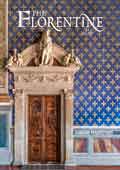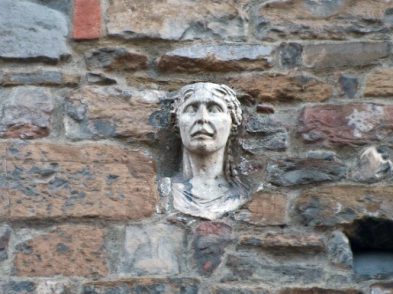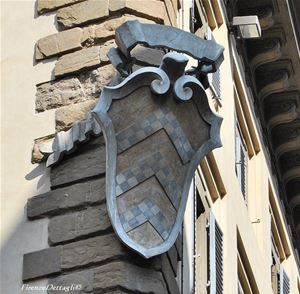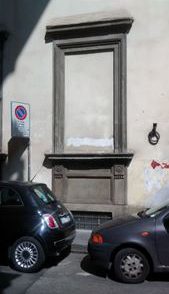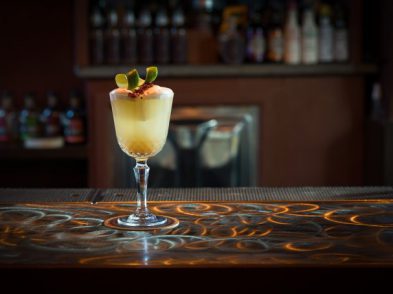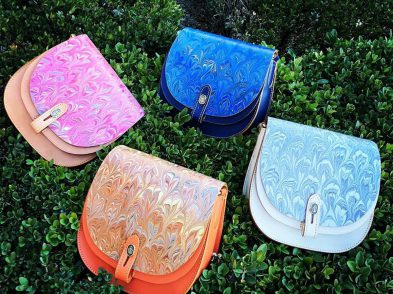It isn’t listed in many guidebooks, but it definitely attracts tourists from across the globe. Hidden just off piazza Santa Maria Novella is one of the world’s oldest apothecaries: the Officina Profumo-Farmaceutica di Santa Maria Novella. This historic treasure, a stunning frescoed shop and workshop is celebrating its 400th anniversary this May.
Although the Officina Profumo-Farmaceutica di Santa Maria Novella officially opened as a shop in 1612, its origins date back to 1221. Dominican monks who lived at the monastery of Santa Maria Novella church ran a small infirmary to care for sick monks and Florence’s poor. They cultivated herbs and medicinal plants to make syrups, pills and balms for their patients. Word of their skill spread quickly, not only through Florence but also in Italy, then across Europe and eventually around the world. The ever-increasing demand for the medicinal balms prompted Fra Angiolo Marchissi to open a shop in via della Scala, and shortly afterwards it was named Foundry of His Royal Highness by the then grand duke of Tuscany. It has operated from that spot ever since, enjoying uninterrupted business for 400 years.
One could easily walk by the entrance without ever noticing it, but those who make their way through the stone passageway leading into the heart of the building find themselves in a stunning frescoed room, enveloped with the heady scent of 400 years worth of elixirs, perfumes and soaps.
The first room, the sala vendita (sales room), was originally a chapel, now deconsecrated, that was dedicated to St. Nicholas of Bari and commissioned by the Acciaiuoli family. According to tradition, it was given to the Dominican friars when they saved the life of Dardano Acciaioli. When Dardano was critically ill, his doctors prescribed a rare grape called ursine. But with the grape out of season, the family despaired for Dardano’s life. However, upon learning what had been prescribed, the Dominican friars of Santa Maria Novella brought to him the grapes they were cultivating in their garden for medicinal purposes. The nobleman recovered, and out of gratitude built the chapel next to the infirmary so the patients could take part in religious services without leaving their beds. The frescoes on the ceiling depict four continents-Europe, America, Asia and Africa-symbolizing how far the fame of the pharmacy had spread even in those early years.
Throughout the shop, which includes various sales rooms and the old production workshop, many old machines and implements used to make medicines and perfumes are on display. Dating from the 1600s, the objects range from historic thermometers, soap cutters and molds to a lozenge-making machine. The former ‘aroma room,’ where distilled waters were stored, is covered from floor to ceiling with beautiful fourteenth-century frescoes depicting the Last Supper. Today it is a library where visitors can freely browse through books on Florence and its long-standing tradition of perfumery, which the Officina further advanced.
Despite its name, the Officina is no longer an apothecary or pharmacy. It sells perfumes and beauty creams, potpourri, chocolates and liqueurs, all of which are produced using modern, and in some cases custom-built, technology and equipment. However, many of the ancient techniques and top-quality raw materials of the past are still used today.
Among the Officina’s most popular products is Acqua di Rose (Rose Water), which has been in recorded production since 1381. It first appeared in legers as being used during the plague as a disinfectant and as a remedy to be drunk with wine. Even today, word has it that a bottle of the Officina’s Acqua di Rose is in every Florentine medicine cabinet.
Another historic product is Aceto Aromatico, known as the Vinegar of the Seven Thieves. According to local lore, it was used by seven thieves-each knowing only one of the seven ingredients-to rob the sick without risking infection. Eau de la Reine (Queen’s Water) was invented by the monks upon the request of Florence’s greatest ambassador, Catherine de’ Medici, who married King Henry II of France in 1533. She introduced this perfume (and many others) to the French court. Its fame soon spread throughout France. The foundation of the great French perfume industry was thus based on that of Florence. Other popular products of the Farmacia Santa Novella include Aqua Colonia, which has recently become a huge hit in Korea, as well as skin and fur lotions for dogs and cats.
The work to restore the frescoes and return the shop to its original appearance is scheduled to be completed on May 10, when there will be a private celebration, an invitation-only party in the Grand Cloister of the Cloister of the Basilica of Santa Maria Novella, which is now used by the School of Marshals and Brigadiers of the Carabinieri. During that event, a scented commemorative stamp will be presented, followed by a display of flag throwers.
You can celebrate with the farmacia. For the anniversary, the Officina is producing two limited-edition fragrances from 1612, Ottone and Porcellana, with proceeds going to charity. In addition, the Officina will be a special participant in this year’s Artigianato e Palazzo. From May 11 to 13, some 80 craftspeople demonstrate their handiwork and skills, ranging from gold leafing to pottery, in the beautiful Corsini garden, just up the road from the shop. The fair will feature demonstrations of the ancient techniques used by the Officina to make perfumes and herbal remedies.
For more information on the shop, including upcoming events and guided tours in English or Italian, visit the shop at via della Scala 16, visit http://bit.ly/kACKzp or call 055/216276. Eugenio Alphandery, current manager of the Officina, will be publishing a book on the history and achievements of the Officina; check the website for updates.
Don’t miss it!
For information on the Artigianato e Palazzo Fair (May 11 to 13, Giardino Corsini, Via della Scala 115), visit www.artigianatoepalazzo.it.
[A typo in the subtitle of this article was corrected on May 10, 2012]
